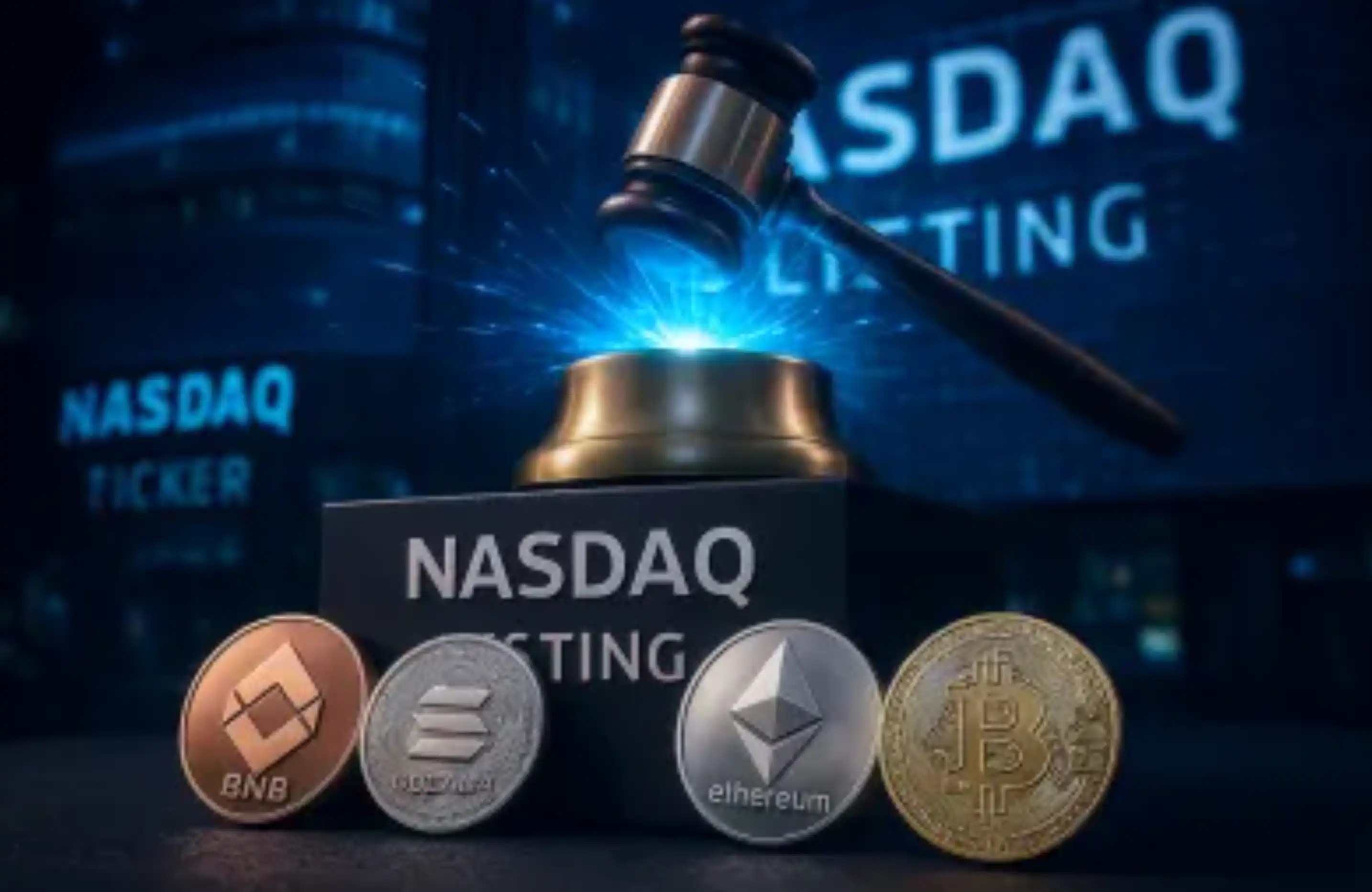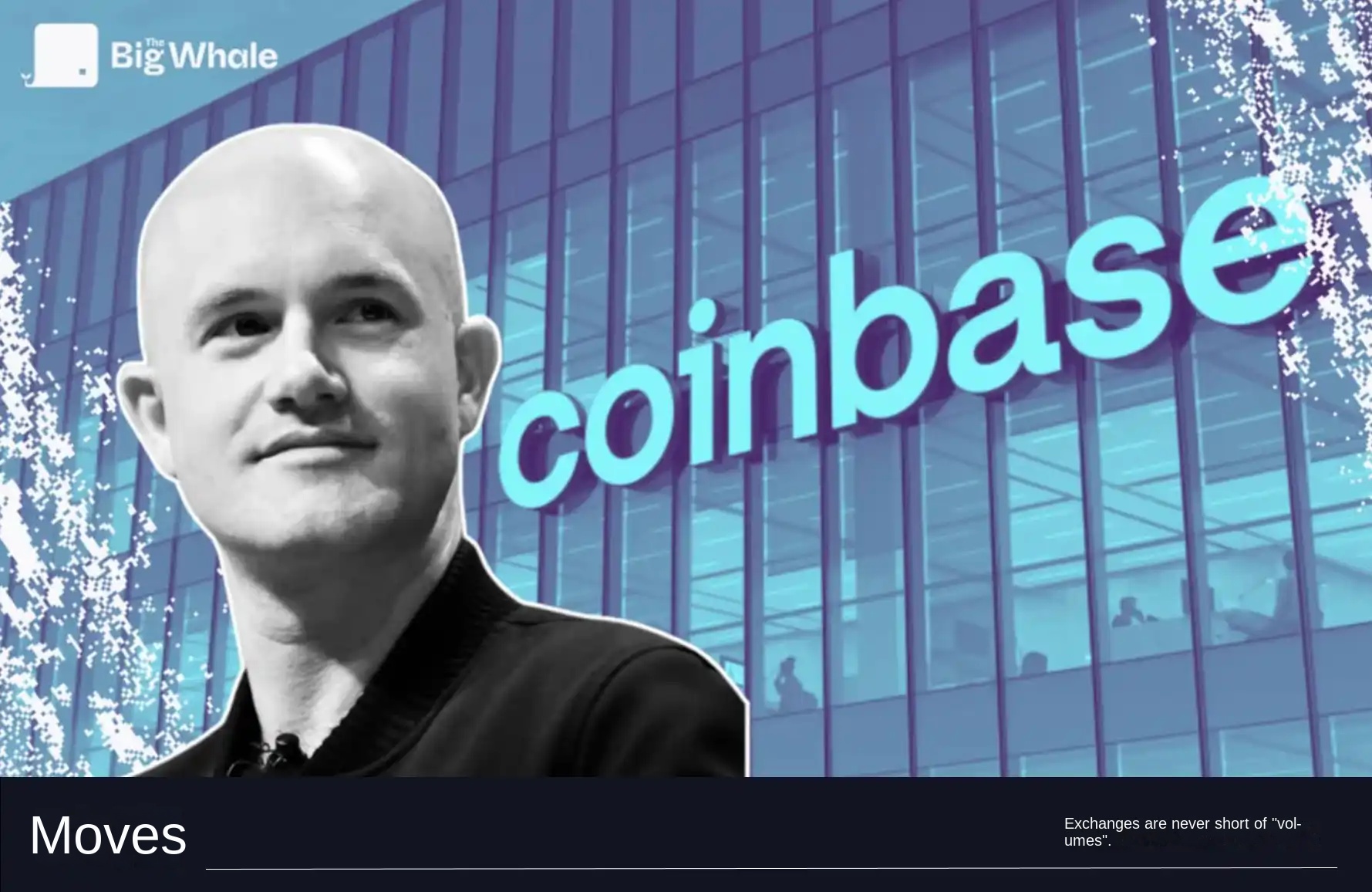Over $100 million a day. Why is Citadel so profitable?
原文标题:《 日赚超亿,聊聊 Citadel 证券的嗨生意 》
Source: Tradinggate
Note: This is the second in a series about Citadel Securities' $1.15 billion fundraisingInvestment Enlightenment by Matt Huang, founder of Cryptocurrency Fund Paradigm
The following is the original text
本文为交易门《全球顶级交易机构巡礼之 Citadel》(Part 2)。 在《全球顶级交易机构巡礼之 Citadel》(Part 1)中,咱们聊完了刚完成投资 Citadel Securities 的国际金融精英黄家父子。今天,就接着来聊聊这宗股权投资的标的公司:投资交易界大家如雷贯耳的 Citadel。
After the crisis, richer and stronger
Ken Griffin is the founder of the Chicago-based Citadel Group and one of the richest men on the planet.
When we last spoke, the billionaire recently sold a $1.15 billion stake in Citadel Securities to Sequoia Capital and Paradigm, which is controlled by the Huang family's oldest son, at a total valuation of about $22 billion. Griffin, 53, added $6.5 billion to a new high of $27.6 billion, according to estimates compiled by Bloomberg.
His net worth has surpassed that of Renaissance Fund founder Carl Ichan and Renaissance Fund founder Carl Ichan.
The Wall Street Journal noted that the move to accept outside investment could be a step closer to a possible future listing of Citadel Securities.
Citadel, founded in 1990, is a financial god for its youth. It has two big businesses: Citadel Hedge Fund, which provides money management, and Citadel Securities, which provides market making. Citadel Securities is less well known than his hedge fund, but has played an increasingly important role in Mr. Griffin's financial empire.
Like other Wall Street hedge funds, Citadel suffered heavily during the 2008 financial crisis, losing $8 billion and at one point being forced to freeze investor redemptions for 10 months. Just when everyone thought Citadel was doomed, Griffin acted like a magician and resurrected the company, spinning off its high-frequency trading unit into Citadel Securities in 2012, creating a stand-alone, powerful market-making firm.
Citadel Securities rose after the financial crisis, making markets in stocks, options and interest-rate swaps. According to Citadel's website, Citadel Securities' automated trading platform trades 25% of all U.S. securities volume, including more than 11,000 securities traded on U.S. exchanges and 16,000 over-the-counter securities. Citadel also handles about 35 per cent of all retail (non-institutional) trading on US exchanges, making it the industry's top market-maker.
Citadel, meanwhile, has long since climbed out of its hole, resurrected and expanding more aggressively. Citadel's hedge funds had about $46 billion under management as of January 2022, according to its website.
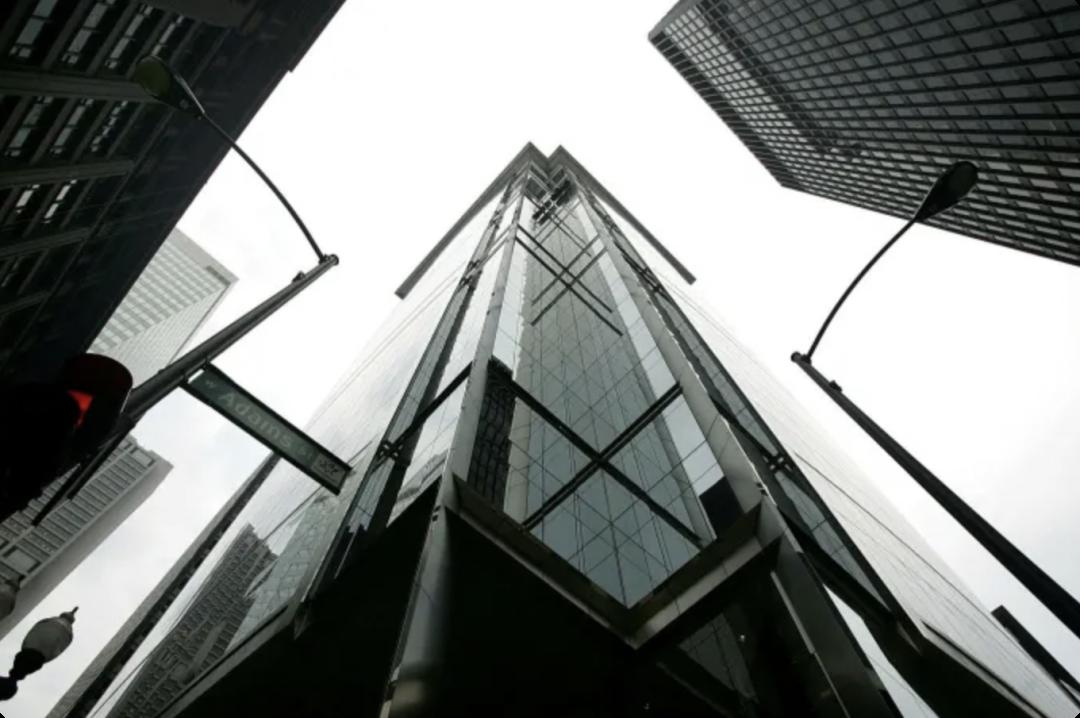
Citadel's headquarters in Chicago
02 Enter China, knock twice
In January 2020, after five years of investigation, the high-frequency trading case of Sidu (Shanghai) Trading Co LTD, which stemmed from abnormal stock market fluctuations in 2015, was finally settled by administrative settlement, caixin reported. Shanghai Sidu and its staff have paid 670 million yuan in administrative settlements to avoid administrative penalties. Citadel Securities is a wholly owned subsidiary of Citadel Securities in China.
Citadel Officials said that Citadel Securities had been in close communication and collaboration with the CSRC throughout the administrative settlement. The constructive settlement is significant for Citadel as China continues to expand foreign participation in the opening of its financial markets.
After the turmoil of 2015, Citadel is even more determined to participate in the Chinese market. On November 18, 2021, its official wechat account published its first article with the headline: Citadel Securities Founder Ken Griffin: Be a Long-term investor in China.
Citadel also posted an exclusive interview with Li Xin, caixin's editor-in-chief. In the video, Griffin not only praises China's economic story and efficiency, but also expresses his determination to see Citadel take further roots in the Chinese market.
"We have a two-pronged strategy in China. For private equity, we are an active participant in the Chinese market, looking for investment opportunities in a variety of well-run Chinese companies... At the same time, Citadel Securities is looking to expand further into China." We are one of the largest market makers in the world and we hope to become more involved in The Chinese market in the coming years and become a thoughtful partner, both providing liquidity in the Chinese market and working with Chinese companies to source capital from around the world."
03 Beijing prodigy, the upper power
We noticed that griffin mentioned zhao Peng, CEO of Citadel Securities, by name in his video interview with Caixin. "Zhao Peng, the current head of Citadel Securities, is an entrepreneur like me. He grew up in mainland China, attended Peking University, and then did his PhD at the University of California, Berkeley, where he joined us in 2006. As CEO of Citadel Securities, Peng Zhao has greatly driven our business forward, exemplifies our focus on talent and our emphasis on a culture of strong risk taking and risk management."
Zhao peng who is

Ten years ago, when I was studying abroad in Chicago, I heard the gossip of Chinese students studying abroad at the old Sichuan restaurant in Chinatown. They were eating with blood and foam at the mouth. They told me that Zhao Peng bought two luxury apartments facing Lake Michigan on Lakeshore, a landmark of Chicago, and opened them up with a total value of over ten million dollars.
Zhao Peng in the mouth of foreign students, naturally mixed with many of their own imagination. Zhao Peng himself is truly the favored son of Heaven. It now plays a major role in Citadel's financial empire.
Born in 1983, Zhao peng, like Griffin, was a child prodigy. He was selected into Class 5 of Beijing No. 8 Middle School when he was a child, showing his IQ and EQ beyond ordinary people. The program recruits 10-year-olds to complete the entire curriculum from grade 5 to grade 3 of high school in four years before taking the national college entrance exam to become college students.
Zhao's classmates in the gifted class have gone on to become global leaders in various industries, including Yin Xi, a renowned scientist who became a full professor at Harvard University at the age of 31.
Zhao studied mathematics at Peking University and then went to the United States to earn his doctorate at the University of California, Berkeley. Mr. Zhao joined Citadel in 2006. By 2017, he was promoted to CEO of Citadel Securities. Zhao's career was closely associated with Citadel from the start, and he earned the trust and respect of its founder, Ken Griffin, a fellow math prodigy. Zhao has great respect for Griffin. He also told the media that he learned most of the way to deal with things and evaluate things from Ken.
04 Every little adds up to a tower, earning over 100 million a day
Citadel Securities' revenues have been boosted by an explosion in trading volumes and volatility in financial markets during the coronavirus pandemic. JMP Securities estimates that 10 million new stock trading accounts will be opened nationwide in 2020 alone, and another 15 million Americans will sign up for online trading in 2021. At its peak trading day in 2020, individual traders are estimated to have accounted for nearly 25 per cent of US trading activity, according to Citadel Securities. Overall, retail investors' share of total trading volume has doubled to an average of 20% from 10% in 2019, Citadel said.
In 2020, Citadel Securities' net trading revenue was $6.7 billion (170 million yuan per trading day), nearly double its previous high in 2018, the Wall Street Journal reported. It hit a new high in 2021.
The cornerstone of profit growth, no doubt, has been the influx of American retail investors into the market during the pandemic.
According to Tradinggate, one of the most popular no-commission trading platforms for U.S. retail investors is Called Robinhood. Robin Hood, another startup, is playing the "zero commission" trade card to take on established brokerages. It proved very successful. What did Robin Hood do for money? It makes money by selling Pay for Order flows to market makers, of which Citadel Securities is the most important buyer.
In the second half of 2019, Robin Hood sold 39 percent of NYSE order flow information on its platform to Citadel, 25 percent to Wolverine and 14 percent to Virtu, according to U.S. regulatory data. Citadel Securities paid $1.1bn to buy order flows in the first nine months of 2021, bloomberg data show.
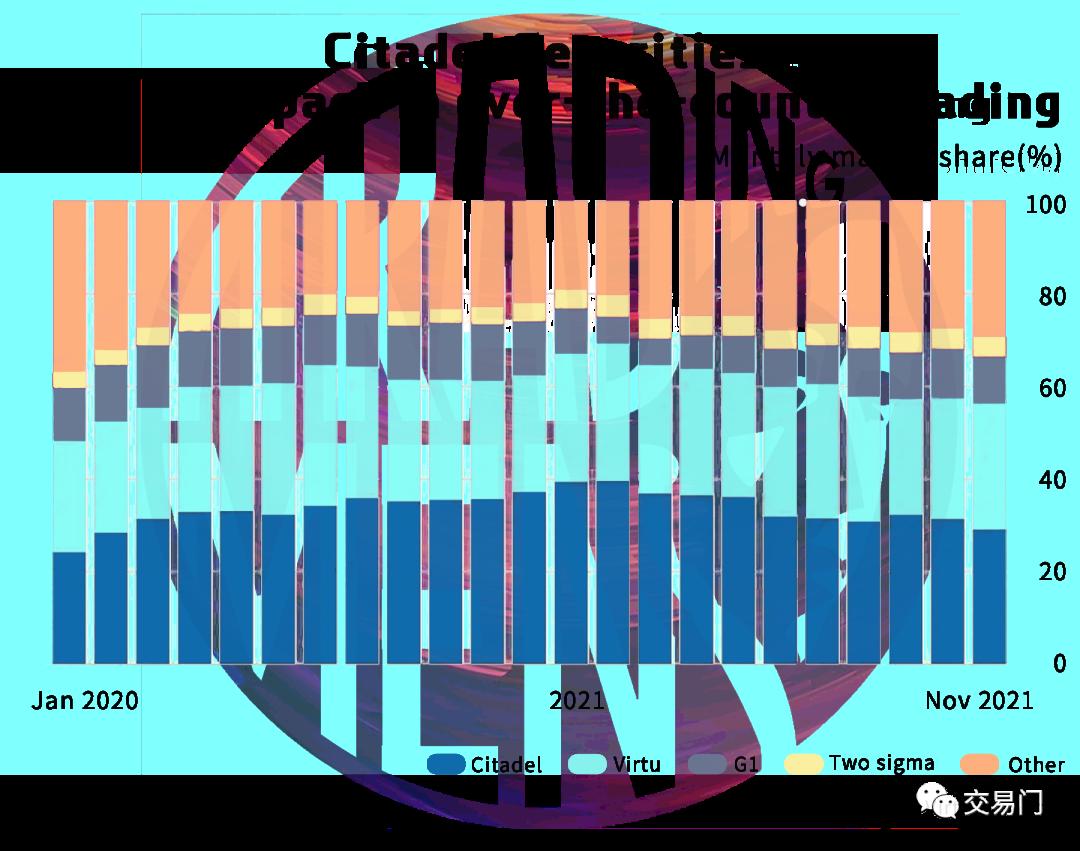
Robin Hood isn't the only broker selling to Citadel's order stream. Brokerage firms including Charles Schwab Corp., TD Ameritrade and ETrade earned $2.6 billion in revenue selling stock and option order flows in 2021, according to the data. Citadel Securities and its rivals, including SIG and Virtu, bought the order streams.
So why would Citadel go to Robinhood to buy retail order flows?
The reason is simple: market makers like Citadel trade with retail counterparties with lower risk and better odds.
Citadel, SIG and Virtu buy order flows from brokerage firms and use that information, as well as other market data and information, to figure out how to match those retail orders and maximize their own market-making profits while meeting regulatory bottom-lines.
According to insiders, precise separation of retail order flows from professional institutions can greatly reduce the risk of market makers being adversely selected and bring stable profitability to the market making business. This increased profitability, in turn, translated into market-makers' willingness to pay for retail order flows, helping to shape the zero-commission securities brokerage ecosystem. The gradual and deepening institutionalization of American financial markets over the past half century is looming.
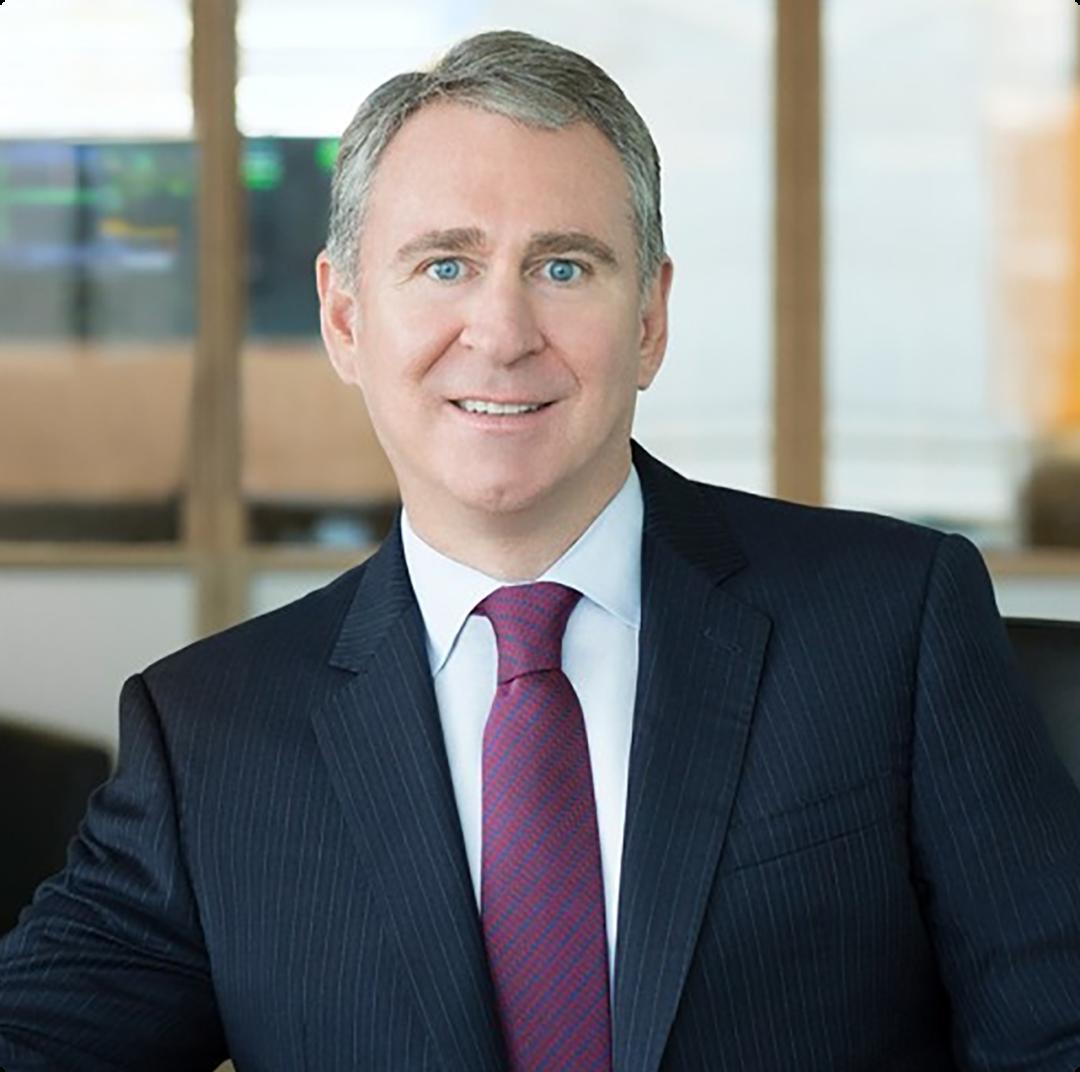
Ken Griffin, Founder
05 Science and technology, born to win
Griffin I think, the ability of science and technology to create a safer Citadel securities markets, he told the financial times, "we can know thousands of stock price at the same time, some do not have our forecast analysis in artificial intelligence, machine learning, modern ability of organization, unable to maintain the integrity of the price during the period of chaos."
But critics say Citadel created an uneven playing field. Citadel had a win-at-all-costs mentality, and Griffin firmly believed that the fastest company should win. But the problem with that is that other institutions that are slightly slower lose. The fastest company wins, which means essentially it wins by information asymmetry.
For retail investors more no advantage in the information dimension, through the zero commission brokerage market, on the surface can greatly reduce transaction cost, but hidden cost may be huge, seemingly "free" gimmick has evoked "excessive trading" on our behavior tendency, also has been a question that the retail order flow is sold, after trading did not get the best execution.
During an interview with the Chicago Economic Club in 2021, griffin was asked about the controversial issue of order stream payments. Griffin replied, "Paying for the order flow is a cost for Citadel, and if regulation is going to go away, that's good for Citadel. But brokers have to make sure they get the best execution on their orders."
In 2017, Citadel Securities settled a $22m fine with US regulators, according to the FT. Regulators say it misled brokers about pricing between 2007 and 2010. In July 2020 the Financial Industry Regulatory Authority, America's industry watchdog, fined Citadel Securities $700,000 for trading ahead of clients' orders. In March 2021, Citadel Securities paid $275,000 to report the error. After Christmas of that year, Citadel Paid another $225, 000 in connection with 'erroneous trades' related to poor risk management on 13 of its exchanges. In each case, Citadel Securities neither admitted nor denied wrongdoing.
"At Citadel, we don't try to be all things to all people, and we don't apologize for that," Zhao Peng, CEO of Citadel Securities, said in an interview with the FT. (" We don't "try to be all things to all people and We don't" t apologise for that, "says Zhao.)
Indeed, striving to gain a competitive advantage so that you can win is the purest practice at the heart of the spirit of capitalism. Why apologize?
The original link
The story behind Citadel Securities' $1.15 billion fundraising is part 2 of our series.Citadel Securities: "We don't make cars, but we do make money" "
Welcome to join the official BlockBeats community:
Telegram Subscription Group: https://t.me/theblockbeats
Telegram Discussion Group: https://t.me/BlockBeats_App
Official Twitter Account: https://twitter.com/BlockBeatsAsia
 Forum
Forum

 Finance
Finance
 Specials
Specials
 On-chain Eco
On-chain Eco
 Entry
Entry
 Podcasts
Podcasts
 Activities
Activities
 OPRR
OPRR





